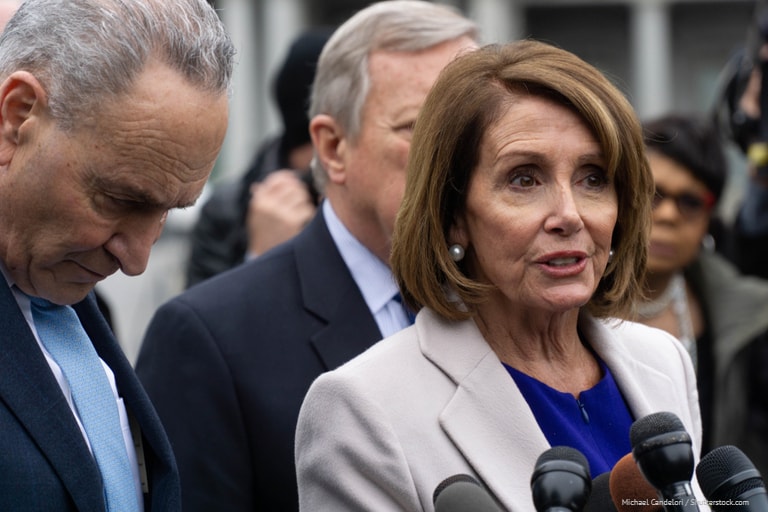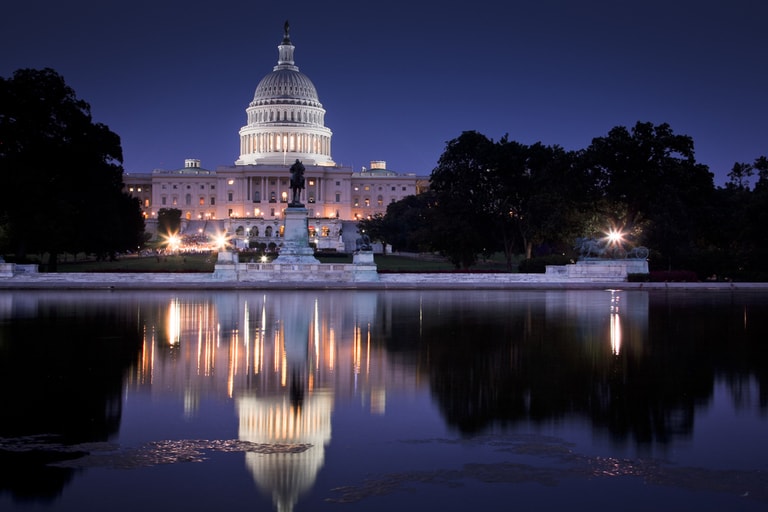By Aly Kamadia, Editor-In-Chief of iDose
History’s eyes were busy glancing at the many messes increasingly haunting liberal democracies. But on the morning of November 13th, 2019, the temptation of watching the political theater in the United States (US) was too attractive to resist.
On that Wednesday, the move to impeach President Trump introduced the first publicly televised testimony.
Some of Trump’s sharpest prominent Democratic Party critics laughed at the idea that this day would come. While they knew that he was guilty of all sorts impeachable and criminal offenses, they didn’t consider the move to impeach politically savvy – particularly given the November 2020 election.
As an example, Democrat Speaker of the House Nancy Pelosi didn’t move to impeach after the extraordinary Mueller report. Despite Trump’s transparent obstruction of justice (among other abuses), Pelosi put her political thinking above the rule of law.

This abdication of duty didn’t sit well with countless people, including real leaders like Elizabeth Warren. The 2020 presidential candidate, for example, was unequivocal in using her massive platform to verbally indict politicians. She vocally reminded many of her fellow Democrats about their “constitutional duty” to impeach. (Any readers who doubted Elizabeth Warren’s leadership could have referred to her 40 minute video-speech made in Congress very shortly after the report was released.)
Slowly but surely, the majority of Congressional Democrats broke away from Pelosi and left her powerless at the moment that the house speaker announced the formal inquiry.
Though even after the formal move, some of Trump’s harshest critics bitterly insisted that the effort to impeach was a waste of time. It wasn’t uncommon to point to his immense public support.
Thus after committing a number of crimes before he ran for office, while he ran for office, and as president, seven recent credible polls showed on average that roughly 44 out of 100 Americans approved of the way that Trump handled his job. On the question of whether they supported impeaching Trump, six recent credible polls revealed on average that approximately 46 out of 100 Americans opposed impeaching him.

In other words, public opinion hadn’t created the facts on the ground for a successful impeachment by a Republican controlled Senate. Indeed, Trump commanded so much influence that as many observed, the “Republican Party” had ceased to exist, and a more accurate name for the group would have been the “Trump Party”.
And if Trump still commanded such numbers after close to three years of openly abusing his office, there was no way he’d get ultimately impeached (i.e. sure the House could ‘impeach’ him, after which the Senate would let him off).
Moreover, such critics pointed out that after the Republican controlled Senate would let Trump off the hook, he would come out popping champaign corks. He’d be celebrating the defeat of an alleged conspiracy to take him down. Places like Fox News along with Facebook (Mark Zuckerberg had made it clear that he would allow complete lies to be advertised on Facebook) could be counted on to trumpet the propaganda that the entire process was a conspiracy. Thus Trump’s chances to win in 2020 would be increased, or so this flawed conclusion alleged.
So, what was the point of pursuing impeachment, such critics asked?
Yes, the likelihood of Trump ultimately being impeached was almost nil. But to argue against the move to impeach for lack of ultimate success and/or the spectacle of Trump celebrating and yelling ‘conspiracy’ was as short sighted as it was foolish.
To begin with, analysis suggesting that Trump would come out more powerful after the proceedings was incomplete at best. Trump was capable of abusing the most powerful political office in the world in any way at any time.
As an example, if he felt desperate enough at any point during the 2020 election cycle, Trump could literally have started a war for absolutely no reason and run out thumping his chest while every major media network would have covered it. And many Americans would have cheered in synchrony with their fake warrior – as they had for a number of years. Put differently, Trump hardly needed an inquiry to give him the opportunity to seize the media’s attention and claim some bogus glory and/or grand conspiracy.
Moreover, failing to attempt to impeach was to declare to the world that Trump was above American law, and could continuously rape the office without any consequences. By moving to impeach, the Democrats had finally set a precedent to contradict this perception.
And while televised testimony (which had yet to begin at the time of this writing) may not have moved American public perception enough to successfully impeach Trump, broadcasting public hearings around the world would inevitably demonstrate that the flagrant abuse by Trump or any future president would not be tolerated and was subject to democratic accountability. (Not to mention, the Democratic Party no longer looked nearly as weak as it did since Trump had been elected. A positive change insofar as the distant 2020 election was concerned.)
In a world that was welcoming more authoritarians and increasingly robbed of any signs of serious political ‘leadership’, holding up the rule of law was more important than ever for democracies.
Thus while it was indeed true that the evidence pointed to a future in which Senate Republicans let their Dear Leader off the hook, the process itself was proof that in America, rule of law and democracy weren’t always cheap slogans.
There were actually some politicians who still believed in pursuing these ideals – at least on the left side of the aisle.
Aly Kamadia is Editor-In-Chief of iDose. To read more articles by Kamadia, click here. To read the Editor’s message, click here.
Note: The views expressed in this article are the author/s, and not the position of Intellectual Dose, or iDose (its online publication). iDose reserves all rights, unless stated otherwise. [print-me]



